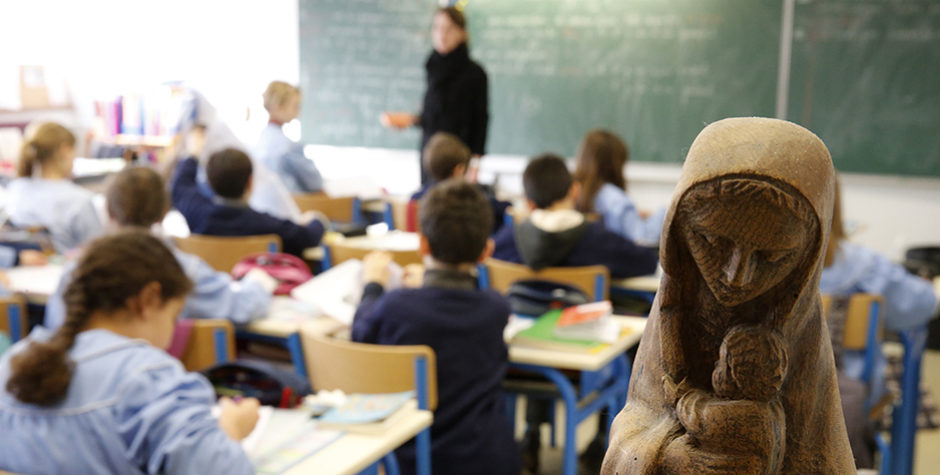Significant Win for Religious Schools, Religious Liberty, and the “Ministerial Exception” at the Supreme Court
Last week, the Supreme Court delivered a major victory for religious schools in two cases, Our Lady of Guadalupe School v. Agnes Morrissey-Berru, and St. James School v. Biel. As we explained here, the two cases involved the important religious liberty principle called “the ministerial exception.”
Broader than its name implies, the ministerial exception protects churches and other religious organizations from government interference in decisions about who leads worship or teaches religion. Where the ministerial exception applies, religious organizations’ personnel choices are not subject to state and federal anti-discrimination laws. Thus, for example, the Catholic Church’s doctrine requiring that priests be male cannot be challenged in court as sex-discrimination.
Dating back to the Nation’s founding, the ministerial exception is really a religious autonomy principle grounded in both the Free Exercise Clause and the Establishment Clause of the First Amendment. It was born of the Pilgrims’ and other early Colonists’ desire to worship as they saw fit and select religious leaders of their own choosing without interference from the English government. Whether Jewish, Methodist, Baptist, Lutheran, or Muslim, religious organizations can choose their own leaders and teachers, even if such choices might otherwise violate an anti-discrimination law.
In a 7-2 decision, the Court held that the ministerial exception to federal employment discrimination laws applies to teachers at religious schools who teach the faith to students. The Court rejected the arguments that its earlier decision in Hosanna-Tabor required that teachers must be given a certain title or have formal religious training to qualify for the ministerial exception.
The religious education and formation of students is the very reason for the existence of most private religious schools, and therefore the selection and supervision of the teachers upon whom the schools rely to do this work lie at the core of their mission. Judicial review of the way in which religious schools discharge those responsibilities would undermine the independence of religious institutions in a way that the First Amendment does not tolerate.
The Court repeatedly emphasized the importance of deference to religious schools’ assessments of which teachers or administrators should qualify.
“In a country with the religious diversity of the United States, judges cannot be expected to have a complete understanding and appreciation of the role played by every person who performs a particular role in every religious tradition. A religious institution’s explanation of the role of such employees in the life of the religion in question is important.” Later, the Court reiterated that “[t]he schools in question here thought that [the teachers] had a “sufficient understanding of Catholicism to teach their students and judges have no warrant to second-guess that judgment or to impose their own credentialing requirements.”
The Court’s emphasis on deference to the schools echoed points we made in our amicus brief, which argued that the lower court’s:
second-guessing of the schools’ assessments about whether the teachers were ministers was wrong because it violated the religious autonomy principle. If religious autonomy is to be safeguarded, courts must defer to the schools’ good faith judgment that a teacher who teaches religious values and precepts qualifies for the ministerial exception. The government may not interfere in religious schools’ decisions either to hire or to terminate its teachers.
This is a significant win for religious school autonomy. Religious schools can now freely make key personnel decisions about those who will pass on the faith to the next generation without having to fear costly anti-discrimination lawsuits.
